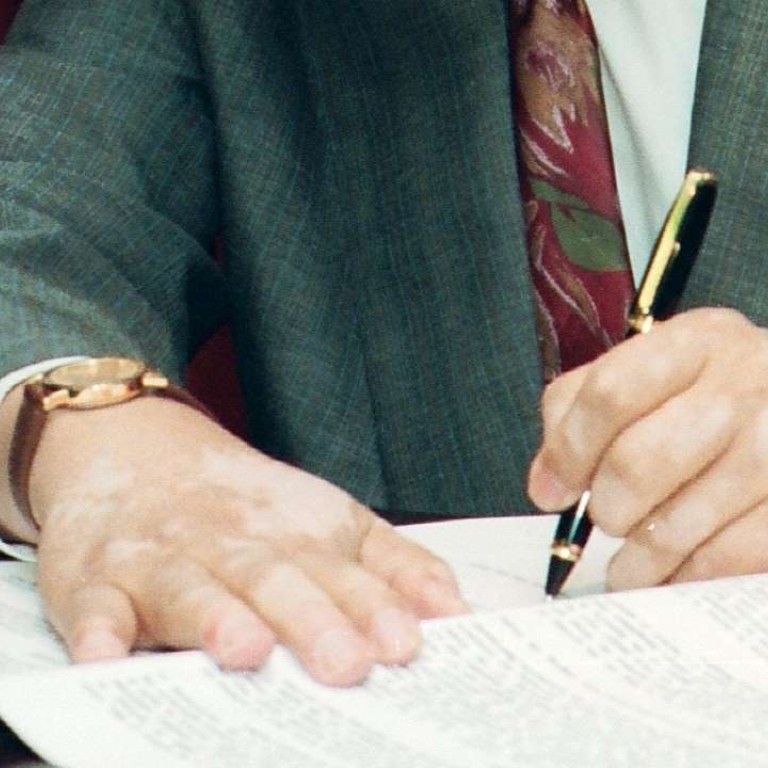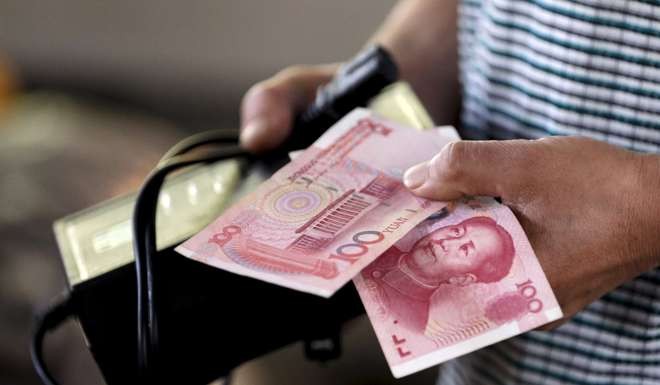
Securities regulator allows electronic signatures for cross-border account opening
Experts welcome the news – the latest step in what could soon become a paperless financial market
Hong Kong’s securities regulator has given its blessing to the use of electronic or digital signatures when securities firms open accounts on behalf of clients, which is expected to make it considerably more convenient for customers not based in the city to open an account here.
An electronic signature can be used to authenticate electronic documents, which is very similar to a handwritten signature which authenticates printed documents.
The Securities and Futures Commission said in an advisory circular on its website that signatures verified by authorities outside of Hong Kong and recognised by the Hong Kong government would be allowed.
Brokers dealing with clients online can now allow their customers to use the recognised signing certificates to create electronic signatures for executing client agreements, the SFC said.
The regulator underlined that securities houses should deal only with regulated financial institutions, certified professional accountants or notary publics to witness the signing of any client agreements and the signing of identity documents.
The SFC has never made it clear whether it was allowed. This official approval now makes it easier for local firms developing overseas clients, and the mainland is the biggest market
“The SFC is minded to closely review and follow up on any potential non-compliance in this area and take appropriate regulatory action,” it said.
Kenny Tang Sing-hing, chairman of the Hong Kong Institute of Financial Analysts and Professional Commentators, said it is the first time the SFC has given official approval to the use of electronic signatures and it had been consulting with the industry closely on the development.
“Some local securities firms have been using electronic signatures, but the SFC has never made it clear whether it was allowed. This official approval now makes it easier for local firms developing overseas clients, and the mainland is the biggest market,” Tang said.
Benny Mau, chairman of Hong Kong Securities Association, said: “The most important point is the SFC has made it clear it will not accept non-professional parties getting involved in the electronic signing process, as there are some unqualified firms or individuals carrying out this type of work in the mainland.

The SFC also outlined in the circular that it was considering industry proposals to allow new forms of financial technology, such as facial recognition. But that such technology is usually used in identity verification processing globally, rather than at the initial account opening stage.
Hong Kong’s securities firms said they viewed the SFC move as another sign the regulators were becoming more open to financial technology, and mutual market access between Hong Kong and the mainland which will help local firms to capture more business, particularly in light of the expected launch of the Shenzhen-Hong Kong Stock Connect.
“It is becoming a major trend globally, to go paperless gradually,” said Mark To, head of research at Wing Fung Financial Group.
It is only right that Hong Kong’s securities industry should make maximum use of technology to help facilitate easier operations, which can ultimately lower costs and raise competitiveness, To said.
Mau said although there are still technical issues to resolve before electronic signatures can be fully introduced, including on the costs involved, the SFC’s decision was a good start by the industry to embrace the latest technology.
Four certification authorities have been recognised by the Hong Kong government to offer electronic signatures , according to the latest list issued in July last year, which acted as a pilot implementation in Guangdong only, under the Mainland and Hong Kong Closer Economic Partnership Arrangement. They are Digi-Sign Certification Services Limited, Hongkong Post Certification Authority, Guang Dong Certificate Authority Company, and Guangdong Electronic Certification Authority Company Limited.
“Practically, qualified Guangdong firms can help with electronic signatures for all mainland clients,” Mau said.

